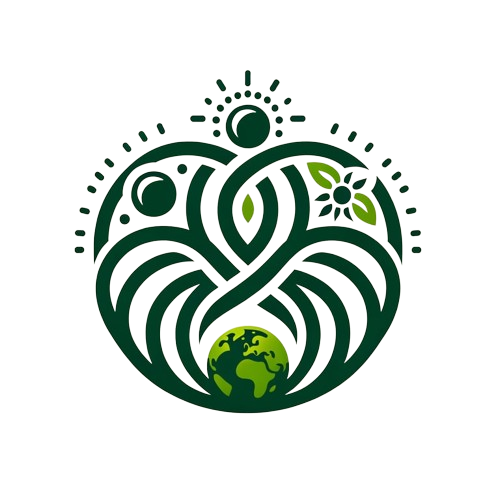Diploma in Health Coaching: Shape the Future of Wellness
The pursuit of wellness is more than just averting illness – it’s about nurturing an enriched life where vitality thrives. Imagine possessing the license to not only guide people through the fog of prevalent issues like anxiety but also to recommend beneficial lifestyle changes such as optimizing omega 3 intake or establishing a regular exercise regime. As a health coach, your toolkit could even extend to advising on specific concerns like yeast infection treatment, embodying a beacon of understanding in a sea of misinformation. The Diploma in Health Coaching plants you firmly on the frontline of this evolving terrain. Keep reading to unearth the skills and knowledge that could transform lives, including your own.
Understanding the Role of Health Coaches in Wellness

Stepping into the role of a health coach, one must wield expertise not just in wellness, but also in adept management strategies that cater to the intricate needs of clients. This profession goes beyond mere nutrition and exercise guidance; it’s about understanding the individual on a profound level. My responsibility encompasses unearthing their unique health goals, and equally, any mental barriers, such as those stemming from internalized racism or stress related to their environment, potentially even their close companions, whether humans or animals. Bridging these insights, I design health strategies, personally tailored to counteract lifestyle diseases and prevent infections, ensuring that each client’s journey is not only about transformation but also about sustainable, holistic health empowerment.
Identifying Core Responsibilities of a Health Coach
In my profession as a health coach, education plays a pivotal role, intertwining with the very fabric of empowerment and sustainable lifestyle changes. It’s my duty to provide clients with informed guidance on a variety of topics, from the importance of water consumption for weight loss success, to demystifying vaccine information in the context of overall health. This tailored educational approach supports individuals in making informed decisions that align with their unique health journeys.
Another integral component of my role is to address the delicate interplay between personal relationships and health. Insightful discussions around marriage can reveal its impact on an individual’s well-being, prompting strategies to foster a supportive environment for healthful pursuits. As a health coach, it is my task to delicately balance these different domains of well-being, ensuring that each person I work with has the knowledge, tools, and support to reach their personal health aims.
The Impact of Personalized Health Strategies on Clients
The profound impact of personalized health strategies becomes evident when clients transition from traditional medicine to customized wellness plans. For instance, a client struggling with frequent migraines might have tried various prescriptions without success, but through our holistic approach that considers factors like climate and individual triggers, they often experience significant relief.
Through meticulous research and personal interaction, I develop comprehensive health strategies that answer the most pressing faq clients have about their conditions. This practice allows clients to feel heard, actively participate in their health journey, and observe tangible improvements, a testament to the transformative power of a bespoke approach to health coaching.
Essential Skills for Aspiring Health Coaches

Pursuing a diploma in health coaching equips you with a diverse toolbox; among the most vital tools are communication skills and a holistic appreciation for client wellness. Mastering the art of dialogue isn’t solely about clear transmission of information; it’s about truly listening, understanding the unique contexts in which a client’s health concerns exist — from the minutiae of their daily data logs to the vast implications of health policy on their access to care. My coaching must integrate knowledge from various health dimensions, recognizing that a client’s lactation period or struggles with arthritis require tailored approaches. This expansive comprehension is what elevates the standard of health care quality, allowing me to guide my clients towards lasting well-being.
Mastering Communication for Effective Coaching
In the fast-evolving field of health coaching, effective communication is foundational. Conveying information clearly is vital, especially when discussing complex topics like injury prevention. Clients depend on my ability to break down intricate concepts into actionable insights, which, in turn, promotes their ability to prevent accidents and maintain wellness.
My role often takes cues from an advisory board, demanding the integration of the latest research into everyday dialogue. For instance, when counseling on the benefits of sleep, I emphasize its role not merely as rest, but as a critical aspect of health surveillance, with the potential to bolster immunity and aid recovery, ensuring that the message is not lost in translation, but rather, sparks meaningful change in my clients’ lives.
Developing a Holistic Approach to Client Wellness
As I step into my role as a health coach, the fabric of my employment is interwoven with a holistic philosophy that aims to treat the individual as a whole. Understanding the intricate ties between a person’s exposure to environmental threats like the West Nile virus and their mental health is critical in crafting effective wellness strategies. It’s about fusing knowledge from health policy, like the Affordable Care Care, with therapeutic modalities to offer comprehensive health plans that go beyond the surface symptoms.
My guidance extends to navigate the complex interplay between various health determinants, ensuring that my clients’ wellness trajectories are supported by affording them access to the full spectrum of care options. Providing therapy in the context of their lived realities, I advocate for their needs in a health policy landscape, ensuring they benefit from all the Affordable Care Act has to offer. This approach not only optimizes their health outcomes but also fosters a sense of autonomy and confidence in their healthcare choices.
Curriculum and Subjects Covered in Diploma Programs

Charting a course through a diploma in Health Coaching, one is met with robust curriculum modules that are foundational to shaping the practitioner I aspire to be. Central to this learning journey is an immersive dive into nutritional sciences, laying the groundwork for understanding how various foods and nutrients impact health – a particularly salient point when considering the nutritional needs and restrictions for individuals managing conditions such as bipolar disorder, where medication can interact with nutrient absorption. Equally, mastery in behavioral change techniques is paramount, as it fuels my ability to inspire and solidify lifestyle modifications that lead to lasting wellness transformations. Moving seamlessly from one expertise to another, I grapple with the nuances of folding fitness principles into holistic health coaching practices. Here, informed by laboratory research and aimed towards maximising accessibility, the lessons are designed to arm me with the competence to respond adeptly, even in emergency situations – ensuring that the fitness advice given is not simply formulaic, but acutely tailored to accommodate the complex needs of diverse clientele.
Overview of Nutritional Sciences and Behavioral Change Techniques
The nutritional sciences component of the diploma in health coaching reveals the delicate balance between budget constraints and dietary choices. My approach to advising clients integrates evidence-based guidelines that prioritize affordability without compromising on nutrition, emphasizing the importance of making savvy, health-conscious decisions regardless of economic limitations.
Behavioral change techniques serve as my compass when addressing sensitive issues like alcohol moderation or substance abuse, both of which significantly increase risk factors for chronic diseases. Fostering resilience in clients, I emphasize strategies rooted in psychological science that encourage them to seek healthier alternatives, and to understand when to call upon emergency medical services in critical situations.
Integrating Fitness Principles With Health Coaching Practices
Intertwining fitness principles with my health coaching allows for nuanced care, especially significant for those in foster care where stress and environmental factors may impact their wellbeing. Tailoring exercise regimens that consider the emotional and physical readiness of these individuals aids in avoiding injury, promoting overall health, and, in the case of those with vulnerabilities like congestive heart failure, potentially mitigating progression of the condition.
My holistic perspective on health coaching encompasses not just a healthy diet, but also the critical aspects of physical activity and immunization. By guiding clients through the development of balanced fitness habits, I bolster their immune responses and contribute to their long-term health, ensuring that each step towards vitality accounts for their individual capabilities and risk factors.
Career Opportunities After Your Diploma in Health Coaching

Securing a diploma in Health Coaching is just the beginning; the real adventure lies in choosing the path that resonates with your passion and expertise. I can envision myself empowering clients at a bustling wellness center, where the language of health forms the core of my daily interactions. My priority in such a setting would be to ensure the safety and confidentiality of individuals seeking advice on sensitive issues like sexual and reproductive health. Alternatively, private practice offers a canvas to paint a tailored approach for those facing unique challenges like managing Crohn’s disease or understanding the implications of blood sugar levels on their overall wellness. The digital realm beckons with its unbounded potential, enticing me to leverage online platforms to extend my coaching services beyond geographical limitations, bringing a personalized touch to virtual consultations. In each of these avenues, my dedication to nurturing health and vitality remains unwavering, as I strive to make a lasting impact in the lives of those I guide towards wellness.
Exploring Paths From Wellness Centers to Private Practice
My journey as a health coach could very well lead me to the warm corridors of a wellness center, immersed in a collaborative setting where javascript powers interactive platforms for client education. Here, amidst the hum of collaborative care, my insights into combating the health effects of mosquito bites in extreme heat become part of a collective mission to improve community health.
Conversely, the autonomy of private practice opens doors to specialize in pioneering telehealth services, where I can offer remote consultation and collaborate closely with physicians, ensuring clients receive a seamless continuum of care. In this personalized health niche, my guidance on avoiding heat-related illnesses becomes as accessible as a click, transcending the traditional confines of healthcare delivery.
Leveraging Digital Platforms for Online Coaching Services
The advent of online coaching services has transformed the access and delivery of health education, especially for those managing chronic pain. A digital platform affords me the ability to dissect the latest statistics with patients, disseminating vital information that can aid in their understanding of disease progression and management in real-time without geographical barriers.
With the power of telehealth, I can guide a patient through the intricacies of Medicaid, ensuring they maximize their benefits while navigating the complexities of their health condition. This digital approach to patient care allows for a personalized, adaptive strategy that keeps pace with the ever-changing landscape of health and wellness.
The Significance of Accreditation in Health Coaching Education

As I consider the monumental strides one can take towards a professional career in health coaching, I recognize the pivotal role accreditation plays in ensuring quality education and the legitimacy of the credentials we earn. In my journey towards dispensing advice on physical activity, addressing concerns like shingles, or tailoring hormone replacement therapy interventions within a community or clinic setting, the backing of an esteemed accrediting body stands as a testament to the caliber of my expertise. Therefore, evaluating the accreditation bodies and their standards is not just a procedural step, but a fundamental assurance to my clients and colleagues that the guidance and support I offer is built upon a solid foundation of accredited education and recognized professional procedures.
Evaluating the Accreditation Bodies and Their Standards
As a health care provider, I am acutely aware that the trust my clients place in me often hinges on the pedigree of my education, particularly when discussing highly sensitive health topics like cancer. To that end, ensuring that the accreditation bodies that certify educational programs meet rigorous, industry-standard benchmarks provides a layer of credibility to my recommendations, which can directly influence a client’s health outcomes and, by extension, their income.
Navigating the realm of health coaching accreditation, I prioritize institutions that not only conform to high educational standards but also emphasize ethical practice, especially critical when addressing pervasive issues such as the opioid crisis. Scrutinizing the accreditation bodies involves more than a cursory glance at their https websites; it demands a thorough analysis of their commitment to upholding the integrity and competency of health coaches as informed, ethical practitioners.
Conclusion
A Diploma in Health Coaching equips practitioners with a diverse set of skills, from nutritional science to behavioral change techniques, essential for crafting personalized and sustainable health strategies. This comprehensive education provides the foundation for addressing complex health needs with a holistic approach, considering the interplay between physical, environmental, and policy-related factors. As the wellness industry evolves, those with a Health Coaching Diploma are poised to offer innovative care through various avenues, from wellness centers to digital platforms, transcending traditional healthcare delivery. Accreditation of the diploma ensures that the guidance offered by health coaches is anchored in quality, recognized education, and professional integrity, shaping the future of wellness with credibility and impact.





